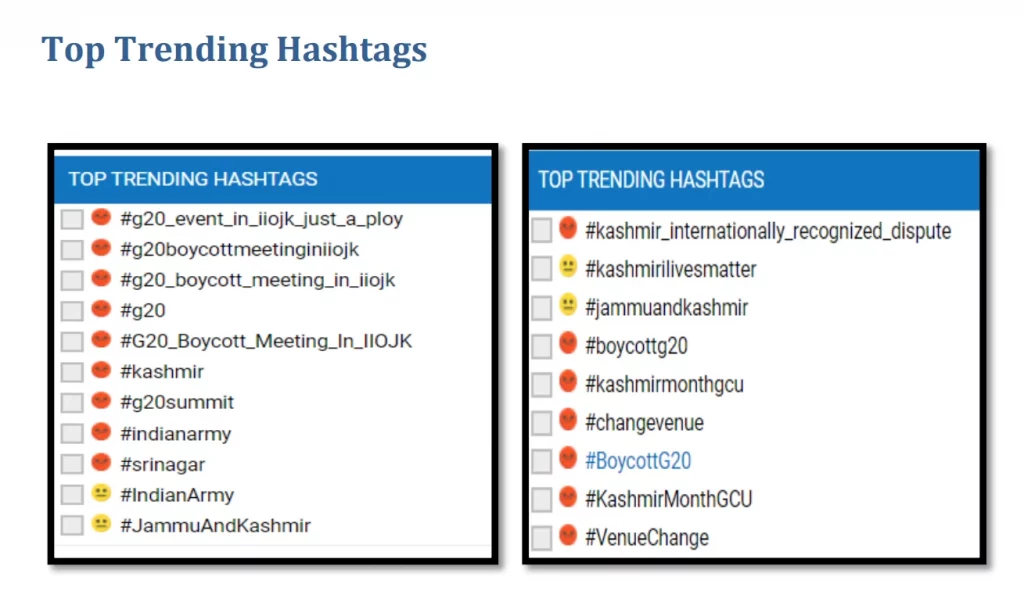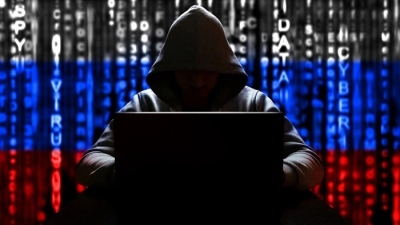Data analytics show that Pakistan has been running a consistent social media campaign against G20 and Y20 meetings in Jammu and Kashmir (J&K). The Pakistani anti-G20 campaign has been supported by Canada-based political parties, Khalistani organisations and the Srinagar-based All Parties Hurriyat Conference (APHC).
Intelligence agencies show that China too has supported Pakistan in creating a negative sentiment against the G20 meetings. Beijing decided to boycott the Y20 meeting held in the union territory of Ladakh on April 26. However, with 170 dignitaries, including 100 foreign delegates and photographs swamping social media, the Ladakh Y20 meeting has been a roaring success for India.
Y20 delegates at PreSummit Excursion in Ladakh were mesmerized by the magical view of the confluence of Indus & Zanskar rivers. #Ladakh #sangam #Y20India #G20India #Y20atLeh@tourismgoi @PIB_India @incredibleindia @YASMinistry @ianuragthakur @g20org pic.twitter.com/ETEBaEuUdz
— Ladakh Tourism (@utladakhtourism) April 27, 2023
Information compiled by Indian intelligence organisations shows that a number of Pakistani handles under fake names have been busy promoting anti-G20 propaganda against India. This is besides the diplomatic offensive that Pakistan had been running since at least June 2022 against India’s presidentship of the G20.
Much before India took over the G20 in December 2022, the Pakistani Ministry of Foreign Affairs (MoFA) had launched a diplomatic diatribe against the G20 grouping and also India. Pakistani diplomats reached out to G20 countries to boycott India.
Pakistan has been urging allies, including China, Turkey and Saudi Arabia to boycott the G20 meetings being hosted by India in J&K. It has also played up the Muslim sentiment saying that Muslim countries should support Pakistan over the Kashmir G20 meetings.
Pakistan-based social media handles on Twitter – @NimraChoudhar20, @new789807, @muhamednaseer2, @Natasha85852 – have been actively campaigning against the G20. Most of the anti-G20 comments were traced to Lahore and Islamabad.
These handles have been using hashtags, ‘G20boycottmeetinginiiojk’, ‘boycottG20’, ‘Kashmir_Internationally_Recognized_Dispute’, ‘G20_Event_In_IIOJK_Just_A_Ploy’, ‘changeg20venue’ and ‘freelashmirfromg20’ in an effort to derail the G20 meetings in India, targeting J&K.

Besides Pakistan, much noise was created by Canada-based organisations like the New Democratic Party (NDP) which called for a boycott of G20 events in Kashmir, Chandigarh and Punjab. The World Sikh Organization of Canada (WSO) too gave a call to Canada to boycott the G20 summit.
Pakistan also used a number of organisations and universities to join its propaganda. The Kashmir Institute of International Relations (KIIR) wrote to Japanese Prime Minister Fumio Kishida against India. Similarly, the Kashmir Diaspora Coalition (KDC) wrote to all the heads of States of G20 to not attend the meetings in India.
Islamabad’s strenuous efforts seem to have failed as unfazed by Pakistani propaganda, India has hosted over 200 G20-related meetings, including high-power ministerial meetings of foreign ministers and finance ministers, in nearly 60 cities across the country.
With the global south standing behind India’s catchy ‘Vasudhaiva Kutumbakam’ – ‘One Earth, One Family, One Future’ idea, Pakistan’s campaign has lost its fizz.
The report also says that for India the bigger challenge is to surmount the challenge posed by Pakistan’s terror groups active on the ground, particularly for the G20’s Tourism Working Group meeting to be held in Srinagar from May 22-24. The tourism meeting is important for India as it focuses on making Kashmir an international tourist destination.
The recent gun and grenade attack on an Indian military vehicle that took the lives of five soldiers has heightened India’s fears that Pakistan will try to launch more attacks in J&K. The Poonch attack, near the Pakistan border, took place just one day after a Y20 event at the Jammu University and was believed to be carried out by the Pakistan-based terror group Jaish-e-Mohammed (JeM).
Former Pakistani ambassador to India, Abdul Basit has justified the killing of India soldiers in a video interview.
Basit told media organisations that the attack was legitimate. He said that the attack was carried out by mujahideen (holy warriors) who have targeted the military… which is a legitimate target and is allowed by international law.
Pakistan-based terrorists have been involved in targeted killings of Hindus and Sikhs in Kashmir. In some of the attacks earlier this year, even Hindu children were killed by explosives placed by the terrorists.
Also read: Why the Pakistani army chief’s visit to China is significant




















